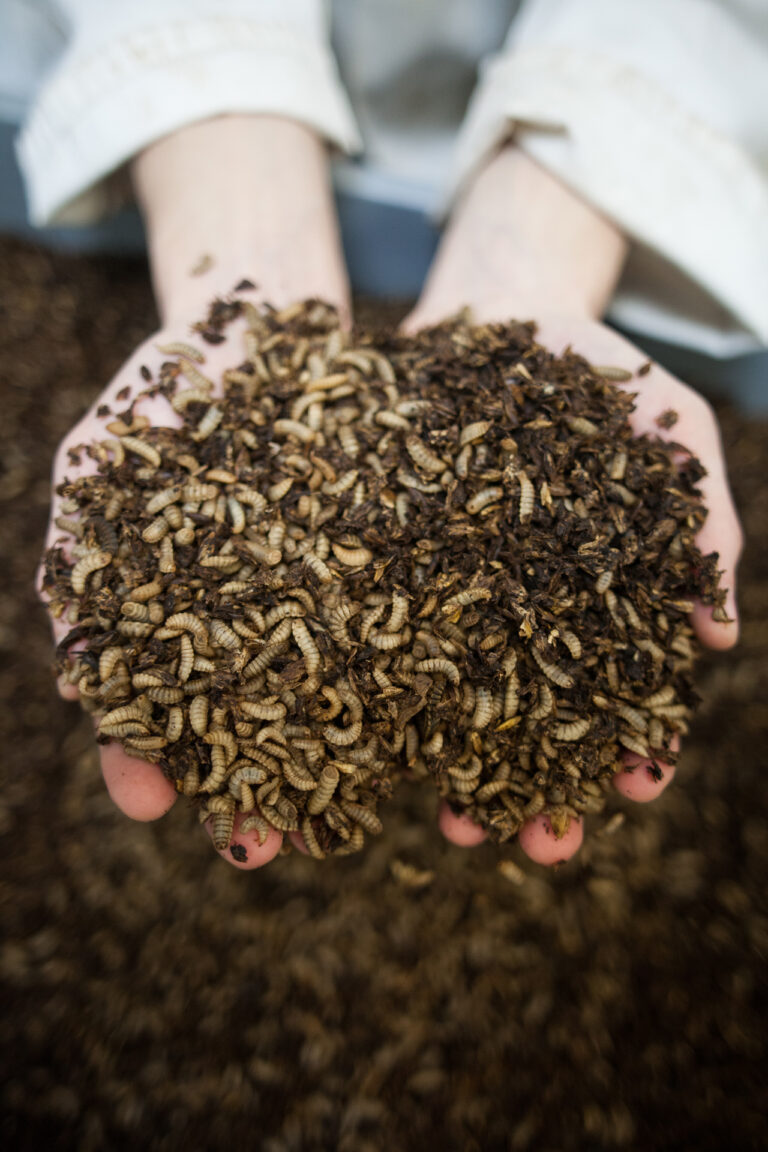The University of Leeds and Entocycle have unveiled a new £430,000 research program dedicated to developing the protocols and codes of practice to unlock the growth of the UK insect farming industry and its potential to decarbonise livestock production.
The UK insect farming industry is currently constrained by strict legislation on the use of insect protein in animal feed and a lack of protocols and standards for insect-rearing facilities. Furthermore, current UK and EU legislation prohibits the use of livestock manure and slurry as a feedstock for insects.
Examples of feedstock include vegetables not meeting specific supermarket standards, by-products from vegetable processing such as potato or carrot peelings, or spent grains from beer or spirits production. Animal products are not permitted, with the exception of dairy products and eggs.
The project, named InSAFE, is funded by Innovate UK and BBSRC as part of the Novel Low Emission Food Production Systems competition and will evaluate the use of feedstocks currently not permitted, including pig slurry, chicken manure and sewage sludge, to raise black soldier fly (BSF).
Protocols, codes of practice and food safety and quality standards will also be developed for a range of production scales, from small lab-scale units to commercial farms.
A new, state-of-the-art insect-rearing demonstrator facility, developed and installed by insect technology company Entocycle, will house the research and is situated at The National Pig Centre on the University of Leeds’ research farm in Yorkshire.
The 40ft walk-in unit – named ‘Entoexplore’, is the only commercial demonstrator to utilise non-permissive feedstocks in the UK, and it has been specifically designed and built to withstand the industrial requirements of handling these inputs.
Samples will be collected from the unit, in addition to Entocycle’s R&D facility in London for permissive feedstocks, including segregated food waste. The research will analyse the bacterial microbiome, pathogen loads, presence of AMR genes, and heavy metal content of permissive and non-permissive feedstocks before and after insect bioconversion, alongside analysis of the BSF larvae and by-products such as frass.
Insect farming provides a low-carbon protein alternative to soy and other feed ingredients by using less land area, less water, and fewer fossil fuel-based materials per kg of protein produced.
Will Bisset, commercial officer of Entocycle, said, “Once UK legislation is updated to permit these inputs, we’ll see the price of insect protein fall and challenge incumbent protein sources such as fishmeal and soymeal, becoming a mainstream protein source across agriculture. The UK has a real opportunity to become a global leader in this space and become much more secure in terms of our food and feed supply – especially amidst the global shocks and supply chain instability of recent years.”


